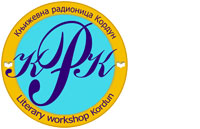|
|
|

WORLD CULTURE AND FOLK CUSTOM - ICELAND  | Simo Jelača | |
| |
detail from: KRK Art dizajn
WORLD CULTURES AND FOLK CUSTOMS - ICELAND
SIMO JELAČA, Ph.D. Preface
This book summarizes information about the culture and customs of different peoples. There are noticeable differences in customs among Christian, Islamic and Buddhist nations, although in everything the intention for the beautiful and the greatest prevails.It would be too much to include every country, as there are similarities among many peoples of the same or close nationality. Russia, Ukraine, Serbia, Belarus, Croatia, Montenegro, Macedonia, as well as Germany and Austria are characteristic. A similar conclusion is valid for the Latin peoples, and among themselves.Readers will find basic information about each country, such as its location and size, population and ethnic composition, religion, climate, language, etiquette, and more.This book can be used equally by travelers, whether as tourists or business people, so that everyone will find the necessary information about the etiquette of people at home and at work.My intention was to find as much good information as possible. Readers will judge how successful I was.Author
ICELANDCULTURE AND FOLK CUSTOMS
Facts and Statistics
Population: 330.000Capital: Reykjavik, population 120.000Size: 103.000 square kilometers. Government: Constitutional republic.The little capital with the big heartWith a population of 120,000, Reykjavík is not a whirlwind metropolis. Few skyscrapers grace the skyline, traffic jams are rare and faces are familiar. But don't be deceived—a steady beat of energy and events keeps the city alive and pulsing with excitement.Reykjavík is the natural starting point for any visit to Iceland. The capital is world-renowned for its culture, history, and natural beauty on all fronts. Doing business in IcelandThe business environment in Iceland is fast moving, focused and company friendly. It is not restricted by complex regulations nor burdened with a heavy system of taxation. For efficient infrastructure, expert services and smooth administration, Iceland meets the highest international standards.Iceland's operating environment is competitive with leading countries in the industrial world. With its low tax structure, high education levels and competitive costs for skilled labor, land and electricity Iceland is a strong candidate for businesses.Meeting and GreetingThe handshake is the traditional form of greeting when meeting with your Icelandic hosts both at both the start and completion of meetings and you should ensure that you shake hands with all meeting attendees. Ensure that this is coupled with good eye contact and that your handshake is firm. It is common practice to exchange business cards when you meet your hosts for the first time. CommunicationIt is normal for individuals in Iceland to be direct in their speech. This should be expected therefore and not taken offensively.English is widely spoken in business forums.Meetings and negotiations. You should ensure that appointments are made in advance and that you state the intended meeting time using the 24-hour clock as this ensures that potential misunderstandings in respect to the language. Individuals in Iceland place great value on punctuality and for this reason it is strongly advised that you contact your respective meeting host if you are likely to be late. Always arrive in advance of the start time so that you are in a position to participate in the meeting at the agreed start time.. If you use any presentations or other supporting information during the meeting then you should ensure that any information used is precise and to the point with relevant data included where necessary.. Avoid setting false expectations or making promises that you cannot keep as honesty (and straight talking) are respected in Iceland.Business Etiquette in IcelandHierarchies are rather flat in Iceland and you should therefore make sure to treat all your business partners equally, regardless of their social or professional status. Precision and honesty are important and well-respected among Icelandic business partners. Thus, you will soon learn that your business partners do not waste time beating around the bush but get straight to the point during negotiations.
Etiquette and RespectIf you ever find yourself in a moment of awkward silence just talk about the weather, Icelanders love to talk about the weather (much like the British and other Scandinavians). If you enter an establishment that you intend to do business in, it will accept credit cards, no need to ask. Reykjavík City Hall is an exception. Expect to be asked "How do you like Iceland?" several times during your stay. Many tourists see Icelanders as gruff and unapproachable, this is generally just a first impression and most people are friendly and helpful. Tipping is not expected in Iceland. Icelanders are very proud of their country and nature. Compliment these things, and you will get very eager tour guides and service. It is customary for one to take one’s shoes off after entering private homes. In case your hosts do not mind, they will say so.Iceland is one of only a few countries with an active whaling industry.Since recently, volcanoes have been boiling in Iceland, and hot lakes look like a pot of boiling water over a fireplace.
|

















